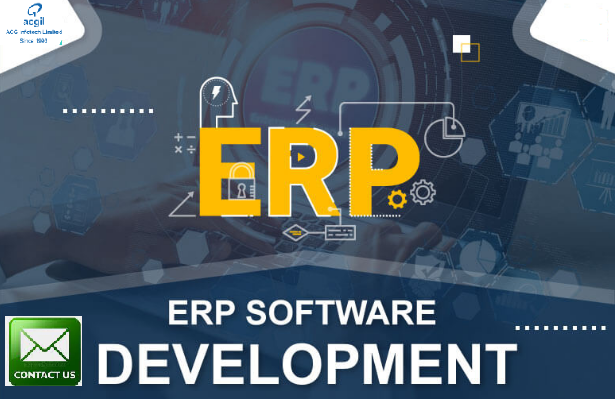In today’s fast-paced and competitive business landscape, small businesses need efficient tools and strategies to stay ahead. One such tool that has gained significant popularity is Enterprise Resource Planning (ERP) software. But is ERP software the right option for your small business? In this post, we will discuss the benefits, considerations, and potential challenges associated with implementing ERP software for small businesses.
Table of Contents
Introduction
What is ERP Software?
Benefits of ERP Software for Small Businesses
- Improved Efficiency and Productivity
- Streamlined Business Processes
- Enhanced Data Management and Reporting
- Better Decision-Making
Considerations for Implementing ERP Software
- Cost and Budgeting
- Scalability and Flexibility
- Integration with Existing Systems
- User Adoption and Training
Challenges of Implementing ERP Software
- Complexity and Customization
- Implementation Time and Disruption
- Data Security and Privacy
- Vendor Selection and Support
Conclusion
Frequently Asked Questions (FAQs)
- Can small businesses afford ERP software?
- How long does it take to implement ERP software?
- Is data migration a challenging task during ERP implementation?
- Do small businesses need to hire external consultants for ERP implementation?
- Can ERP software be customized to suit specific business requirements?
Introduction
Small businesses often face resource constraints and operational inefficiencies. ERP software is designed to address these challenges by integrating and automating various business processes, providing a centralized system for managing core functions like finance, inventory, human resources, and customer relationship management.
What is ERP Software?
Enterprise Resource Planning (ERP) software is a comprehensive suite of integrated applications that enable businesses to manage and automate their core processes. It allows for the efficient flow of information across different departments, facilitating better decision-making, and improving overall business performance.
Benefits of ERP Software for Small Businesses
Improved Efficiency and Productivity
ERP software streamlines and automates routine tasks, reducing manual effort and minimizing errors. It eliminates the need for manual data entry, improves data accuracy, and enables employees to focus on more value-added activities. This increased efficiency and productivity can result in cost savings and improved customer service.
Streamlined Business Processes
ERP software integrates various business functions, such as inventory management, order processing, and financials, into a unified system. This integration eliminates data silos and ensures data consistency across the organization. It enables real-time visibility into business operations, allowing for better planning, resource allocation, and coordination.
Enhanced Data Management and Reporting
ERP software provides a centralized database where all relevant data is stored and updated in real-time. This enables accurate and timely reporting, facilitating informed decision-making. Customizable dashboards and reporting tools allow small business owners to gain insights into key performance indicators (KPIs) and monitor business performance effectively.
Better Decision-Making
Access to real-time data and actionable insights empowers small business owners to make informed decisions. ERP software provides comprehensive analytics and reporting capabilities that enable better forecasting, budgeting, and strategic planning. With a holistic view of their business operations, owners can identify opportunities, mitigate risks, and drive growth.
Considerations for Implementing ERP Software
While ERP software offers numerous benefits, implementing it in a small business requires careful consideration of certain factors:
Cost and Budgeting
Implementing ERP software involves upfront costs, including licensing fees, hardware investments, and implementation services. Small businesses need to evaluate their budget and determine the financial feasibility of implementing ERP. Additionally, ongoing maintenance, support, and upgrade costs should also be considered.
Scalability and Flexibility
Small businesses should choose an ERP solution that can scale with their growth and adapt to evolving business needs. The software should be flexible enough to accommodate changing requirements and support additional users, modules, or functionalities as the business expands.
Integration with Existing Systems
Compatibility with existing software systems is crucial for a smooth ERP implementation. Small businesses should assess the integration capabilities of the ERP software and ensure seamless connectivity with their current applications, such as accounting software or CRM systems.
User Adoption and Training
ERP software implementation requires employee buy-in and effective training programs. Small businesses should allocate sufficient resources for user training to ensure a smooth transition. Engaging employees early in the implementation process and addressing their concerns can help overcome resistance to change and promote successful adoption.
Challenges of Implementing ERP Software
While ERP software offers significant advantages, it is important to be aware of potential challenges:
Complexity and Customization
ERP software implementation can be complex, involving extensive planning, configuration, and customization. Small businesses may require assistance from ERP consultants or implementation partners to tailor the software to their specific needs. Balancing customization requirements with standardization is essential to avoid cost overruns and extended implementation timelines.
Implementation Time and Disruption
Implementing ERP software is a time-consuming process that can disrupt daily operations. Small businesses should carefully plan the implementation schedule, considering the least disruptive periods and allocating sufficient time for data migration, testing, and training. Proper project management and effective communication with stakeholders are critical to minimize disruption.
Data Security and Privacy
As ERP software centralizes sensitive business data, ensuring data security and privacy is paramount. Small businesses should implement robust security measures, such as data encryption, access controls, and regular backups, to protect against unauthorized access or data breaches. Compliance with relevant data protection regulations should also be a priority.
Vendor Selection and Support
Choosing the right ERP software vendor is crucial for a successful implementation. Small businesses should evaluate vendors based on their industry expertise, track record, customer support, and future roadmap. A reliable vendor with responsive support can help address technical issues, provide timely updates, and ensure long-term software sustainability.
Conclusion
Implementing ERP software can provide small businesses with numerous benefits, including improved efficiency, streamlined processes, enhanced data management, and better decision-making capabilities. However, it is important to carefully consider factors such as cost, scalability, integration, and user adoption. Overcoming challenges related to complexity, implementation time, data security, and vendor selection can lead to successful ERP implementation and long-term business growth. So, If you are searching for the best ERP development company in India, ACG Infotech is one of the best option for you. ACG Infotech brings forward an innovative and fresh approach to we & software development services, providing directly without any kind of liaison. At ACG Infotech , projects are not only
developed but also planned to get successfully implemented at client end.
Frequently Asked Questions (FAQs)
- Can small businesses afford ERP software?
The cost of ERP software can vary depending on the vendor, implementation scope, and additional services required. While some ERP solutions may be costly, there are affordable options available specifically designed for small businesses. It is essential to assess the return on investment (ROI) and long-term benefits before making a decision.
- How long does it take to implement ERP software?
The duration of ERP software implementation can vary based on the complexity of the business processes, customization requirements, and data migration. On average, small businesses can expect an ERP implementation project to take several months. Proper planning, project management, and collaboration with the ERP vendor can help expedite the process.
- Is data migration a challenging task during ERP implementation?
Data migration can be a complex and time-consuming task during ERP implementation. Small businesses need to ensure data accuracy, integrity, and compatibility with the new ERP system. Engaging experienced professionals or working closely with the ERP vendor can help streamline the data migration process.
- Do small businesses need to hire external consultants for ERP implementation?
While small businesses can implement ERP software with internal resources, hiring external consultants or implementation partners can offer valuable expertise and guidance. Consultants can help with requirements gathering, system configuration, user training, and change management, ensuring a successful implementation.
- Can ERP software be customized to suit specific business requirements?
Yes, ERP software can be customized to meet specific business requirements. However, customization should be approached carefully to avoid excessive complexity, higher costs, and longer implementation timelines. Finding the right balance between customization and leveraging standard ERP functionalities is essential for long-term system sustainability.

